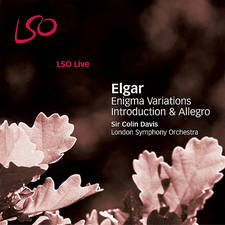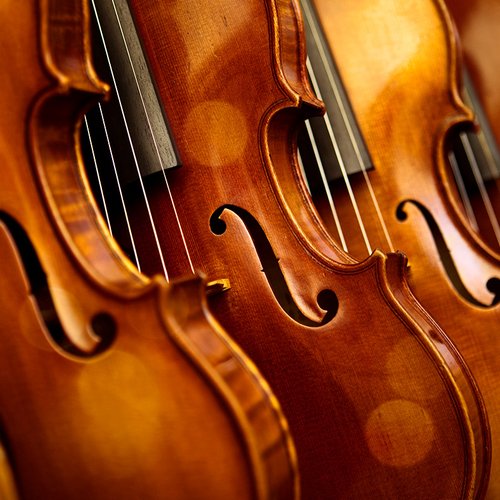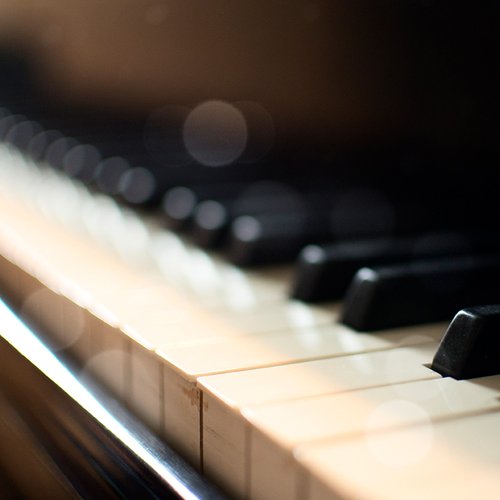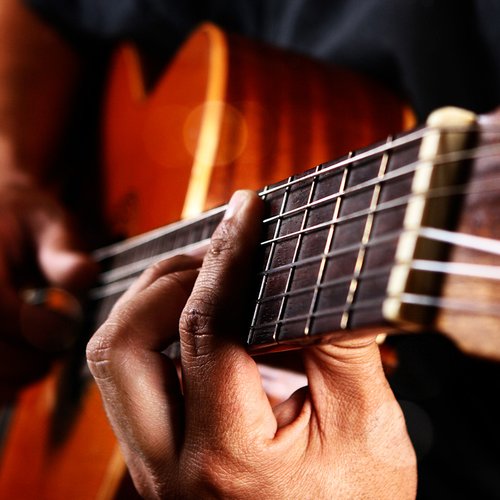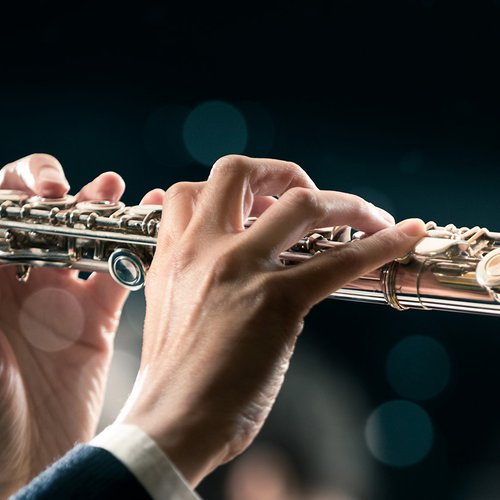The 10 best pieces of music ever written for the organ
14 May 2024, 21:58 | Updated: 17 May 2024, 17:07

How does a pipe organ actually work? | Anna Lapwood | Classic FM
From Bach mastery to the spellbinding brilliance of 20th-century French music, we pull out all the stops in this list of the all-time top 10 organ epics.
Listen to this article
-
Johann Sebastian Bach – Toccata and Fugue in D minor
Undoubtedly the most famous organ work in existence – the powerful opening flourish and stormy, minor mood of Johann Sebastian Bach’s Toccata and Fugue immediately conjures gothic cathedrals and haunted houses.
Its path to a place in music history is cloaked in considerable mystery, the only surviving manuscript being a copy made by an organist who was a contemporary of the great composer. Over the 19th century, its popularity grew. But it was an orchestral transpiration by Leopold Stokowski in the 1940 Disney film Fantasia, which gave it the eternal profile it now enjoys.
The dramatic toccata – from the Italian ‘toccare’ which means ‘to touch’ – allows its organist to showcase their virtuosity, and the different sounds of the instrument. A fugue follows, where a semi-quaver theme is heard again and again in different registers, as the notes chase each other around the instrument’s keyboards and pedals.
Read more: 10 of Bach’s all-time best pieces of music

J. S. Bach, Toccata and Fuga D minor BWV 565 - Jean-Baptiste Dupont
-
Johann Sebastian Bach – Great Fantasia and Fugue in G minor
Bach could paint any mood on the organ – but this is him at his grandest and mightiest, with a touch of showmanship. Like many of his epics for the instrument, Bach writes in a two-movement structure. The fantasia opens with powerful minor chords, enough to blow the socks off any listener.
After the opening movement, a mighty fugue follows. Bach takes a long theme and weaves it into a complex contrapuntal fugue. It is thought that this could have originated as an improvisation Bach did in Hamburg, while applying for an organist job there in 1720, which the composer later wrote out.

Organist Anna Lapwood plays an epic Bach Fantasia at the Royal Albert Hall | Classic FM
-
César Franck – Chorale in A minor
César Franck, born in 1822 in what is now Belgium, was one of the greatest organists who ever lived. He composed extensively for the instrument and laid the foundations for the great French composer-organists to come.
If you’re after something that *sounds* like a towering cathedral, Franck’s chorales are for you. They are absolute masterpieces of the organ repertoire and have all the richness, drama and contrast you could hope for.
And if you could only pick one, the A minor chorale is just spectacular.
Read more: Hear the epic sound of a 33,112-pipe organ in Atlantic City

César Franck : 3° Choral - Olivier Latry, organ of Notre-Dame de Paris
-
Jehan Alain – Litanies
If you like your organ music loud, crunchy and brilliant, French organist and composer Jehan Alain will make you very happy. His 1937 work Litanies begins with a short plainsong phrase before an explosion of harmonic punch colour, drawing on the full power of the instrument.
Here’s Roger Sayer on the magnificent organ of Temple Church London to give your eardrums a delightful battering.

Jehan Alain Litanies
-
Nadia Boulanger – Trois Pièces
Before she taught an exhaustive list of the 20th century’s finest musicians and composers, the legendary French composer and educator was a skilled pianist and organist.
Boulanger’s music for organ showcases her compositional mastery, with some unexpected twists and turns as she explored the boundaries of the craft. This suite of three pieces, which she termed improvisations, begins with a ‘Prélude’, which holds a few dramatic harmonic surprises. ‘Petit canon’ explores the ancient form of a sort of musical echo, and an atmospheric ‘Improvisation’ closes the set.

Nadia Boulanger - Trois Pièces (Trois Improvisations) for Organ (1911) [Score-Video]
-
Charles-Marie Widor – Toccata
For 63 years, Charles-Marie Widor held one of the most prestigious jobs in music, as organist of Saint-Sulpice in Paris. It was there where he composed his famous Organ Symphonies, the fifth of which includes this most famous Toccata.
‘Widor’s Toccata’, as it is commonly known, features staccato arpeggios and syncopated chords with a thundering tune in the pedals. The 1879 piece, which feels like a blast of light and sonic joy, shaped a style of French organ music for the years to come. It’s now the go-to organ recessional for weddings or any grand, joyous church festivity, and always delivers a smile.

WIDOR TOCCATA (SYMPHONY NO. 5) - RIPON CATHEDRAL PIPE ORGAN - JONATHAN SCOTT
-
Florence Price – Adoration
This beautiful melody by pioneering American composer Florence Price was originally written in 1951. The piece was unearthed again in 2009 and has since found huge appeal in arrangements for violin and strings.
The piece features a hymn-like tune, brought to life with its own simple majesty. Though it’s now championed by violin virtuosos Randall Goosby and Daniel Hope, we’re here to celebrate it in its original form as an exquisite work for organ.
Read more: 10 of Florence Price’s all-time best pieces of music

Adoration (for Organ) - Florence Beatrice Price
-
Camille Saint-Saëns – Symphony No. 3 ‘Organ’, Finale
This much-loved symphonic work was commissioned by the Royal Philharmonic Society, with the premiere given in London in May 1886, featuring the composer at the podium.
The glorious work contains some of Saint-Saëns’ finest Romantic writing. The organ takes a largely accompanying role in the first movement and sits silent during the entire second movement. But then all is unleashed in the finale, as a full C major chord in the organ brings in a glorious movement of music. It’s always the stuff of goosebumps.

Saint-Saens: Symphony No. 3 "Organ" - Finale (Auckland Symphony Orchestra) 1080p
-
Oliver Messiaen - La Nativité du Seigneur
Messiaen was one of the most inventive and unique composers of the 20th century. Composing predominantly for organ, he uses sonic splendour, imaginative harmony and, at times, the imitation of birdsong on instruments to tell grand stories in his works.
Inspired by the Christmas story, La Nativité du Seigneur is divided into nine ‘meditations’ to represent stages and stories around the birth of Jesus.
It’s essentially a nativity play for organ, but with the full heft and colour of 20th-century French music. You won’t get singable melodies, but you will be moved by the sheer power and intimacy of the instrument, as Messiaen depicts scenes of shepherds, angels, wise men – and at the end, of course, the birth of Christ.

🎵 Messiaen - La Nativité du Seigneur | York Minster (with score and my markings!)
-
Hans Zimmer – Interstellar
One of the great sci-fi films of our time has an incredible, evocative score with the organ at its heart.
Hans Zimmer has spoken about why he chose the organ for this work. Faced with depicting the complexity and power of space travel, the composer said that for centuries, the pipe organ was the most complex machine ever invented. “Think about the shape of it as well,” he added. “Those pipes are like the afterburners of spaceships”.
And thanks to his incredible score, the organ has lift-off on the big screen.
Read more: Church organ playing Hans Zimmer’s epic ‘Interstellar’ theme makes our world feel tiny

Pianist in St Pancras wows with performance of the main theme of Interstellar by Hans Zimmer
